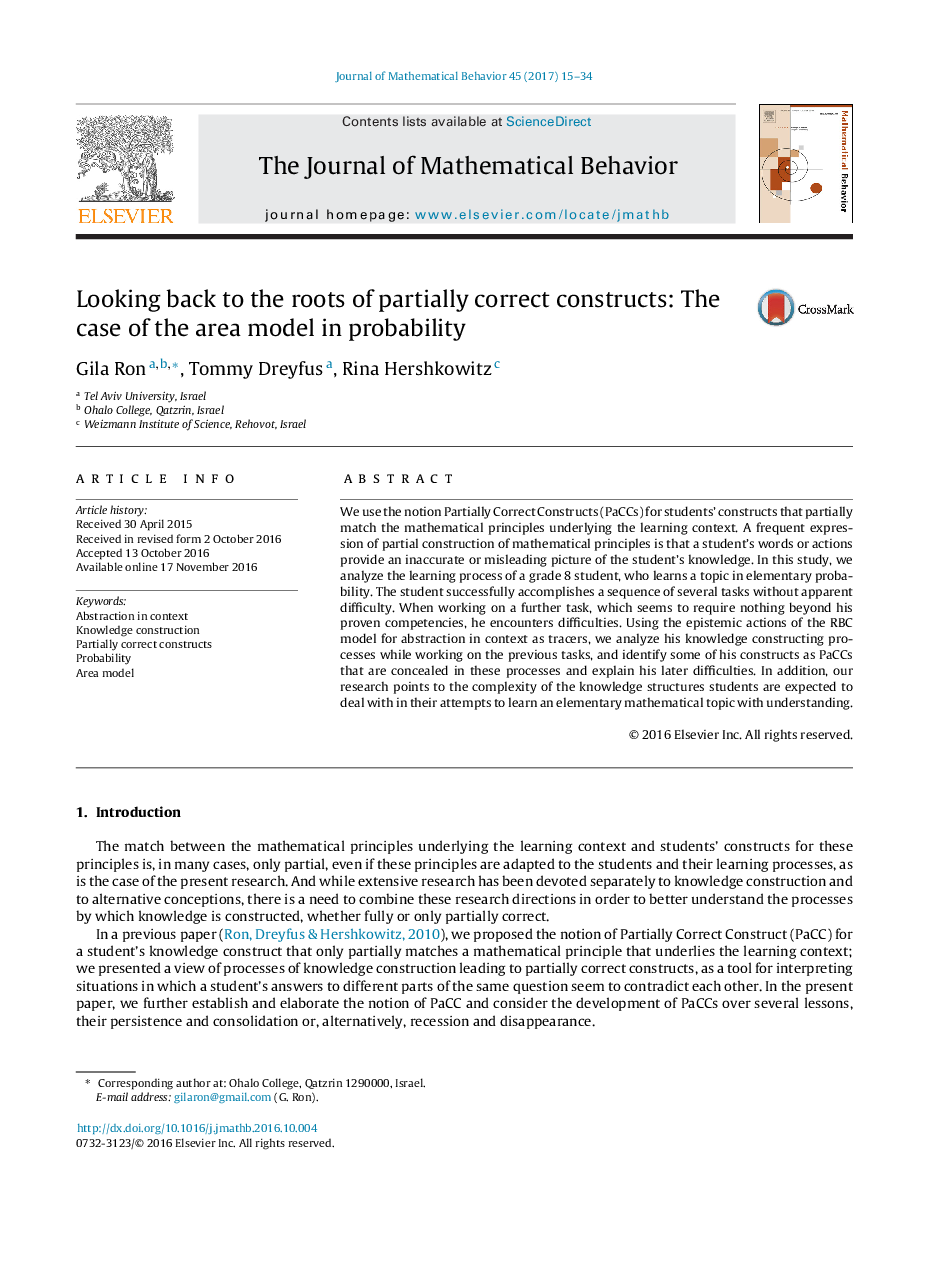| Article ID | Journal | Published Year | Pages | File Type |
|---|---|---|---|---|
| 4939287 | The Journal of Mathematical Behavior | 2017 | 20 Pages |
â¢We provide a microanalysis of learning processes in probability in terms of PaCCs.â¢PaCCs are students' constructs that only partially match the underlying mathematics.â¢Students' difficulties are often rooted in PaCCs that emerged earlier.â¢PaCCS can explain how students' mistakes may hide meaningful knowledge.â¢PaCCS can explain how students' correct answers may hide knowledge gaps.
We use the notion Partially Correct Constructs (PaCCs) for students' constructs that partially match the mathematical principles underlying the learning context. A frequent expression of partial construction of mathematical principles is that a student's words or actions provide an inaccurate or misleading picture of the student's knowledge. In this study, we analyze the learning process of a grade 8 student, who learns a topic in elementary probability. The student successfully accomplishes a sequence of several tasks without apparent difficulty. When working on a further task, which seems to require nothing beyond his proven competencies, he encounters difficulties. Using the epistemic actions of the RBC model for abstraction in context as tracers, we analyze his knowledge constructing processes while working on the previous tasks, and identify some of his constructs as PaCCs that are concealed in these processes and explain his later difficulties. In addition, our research points to the complexity of the knowledge structures students are expected to deal with in their attempts to learn an elementary mathematical topic with understanding.
